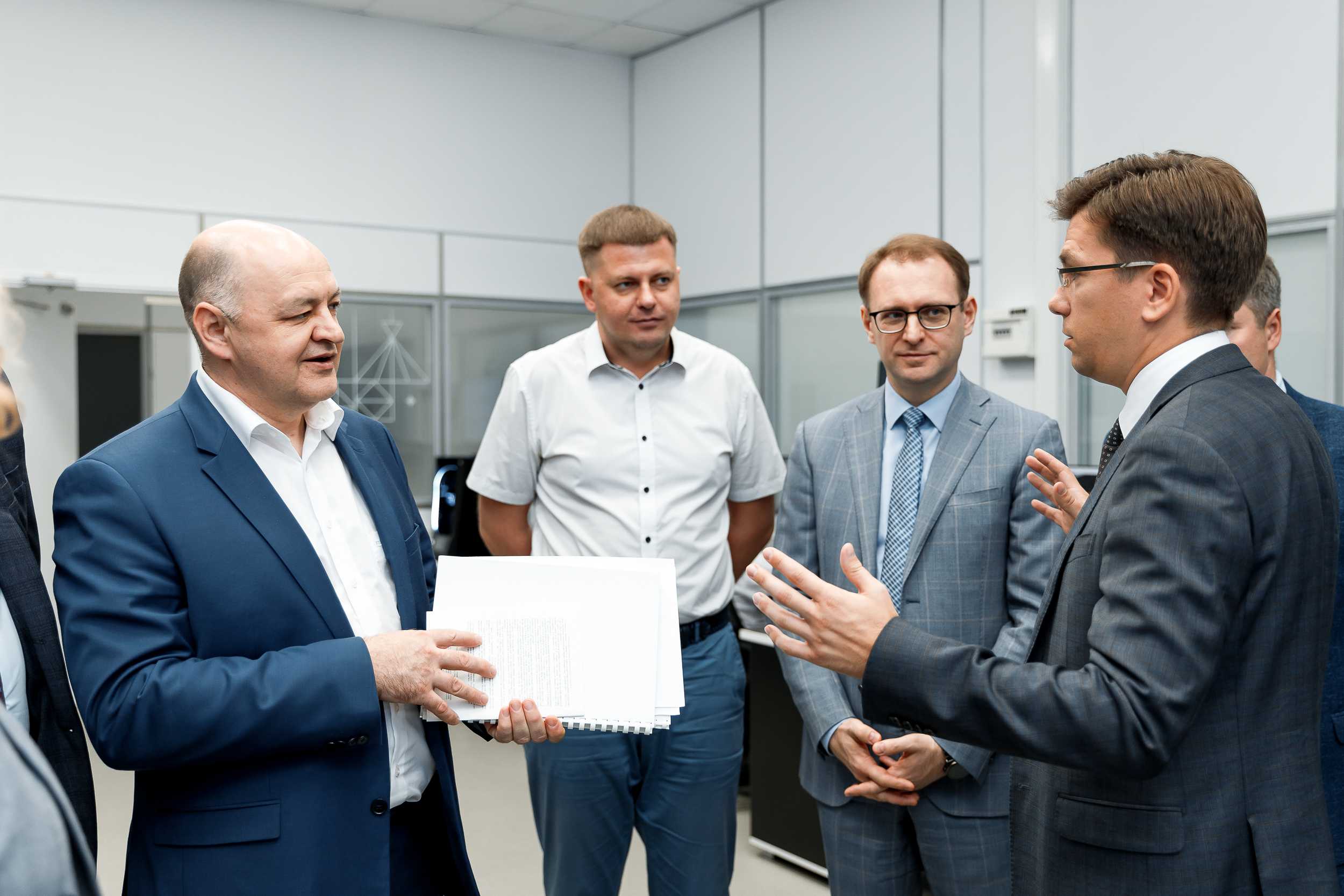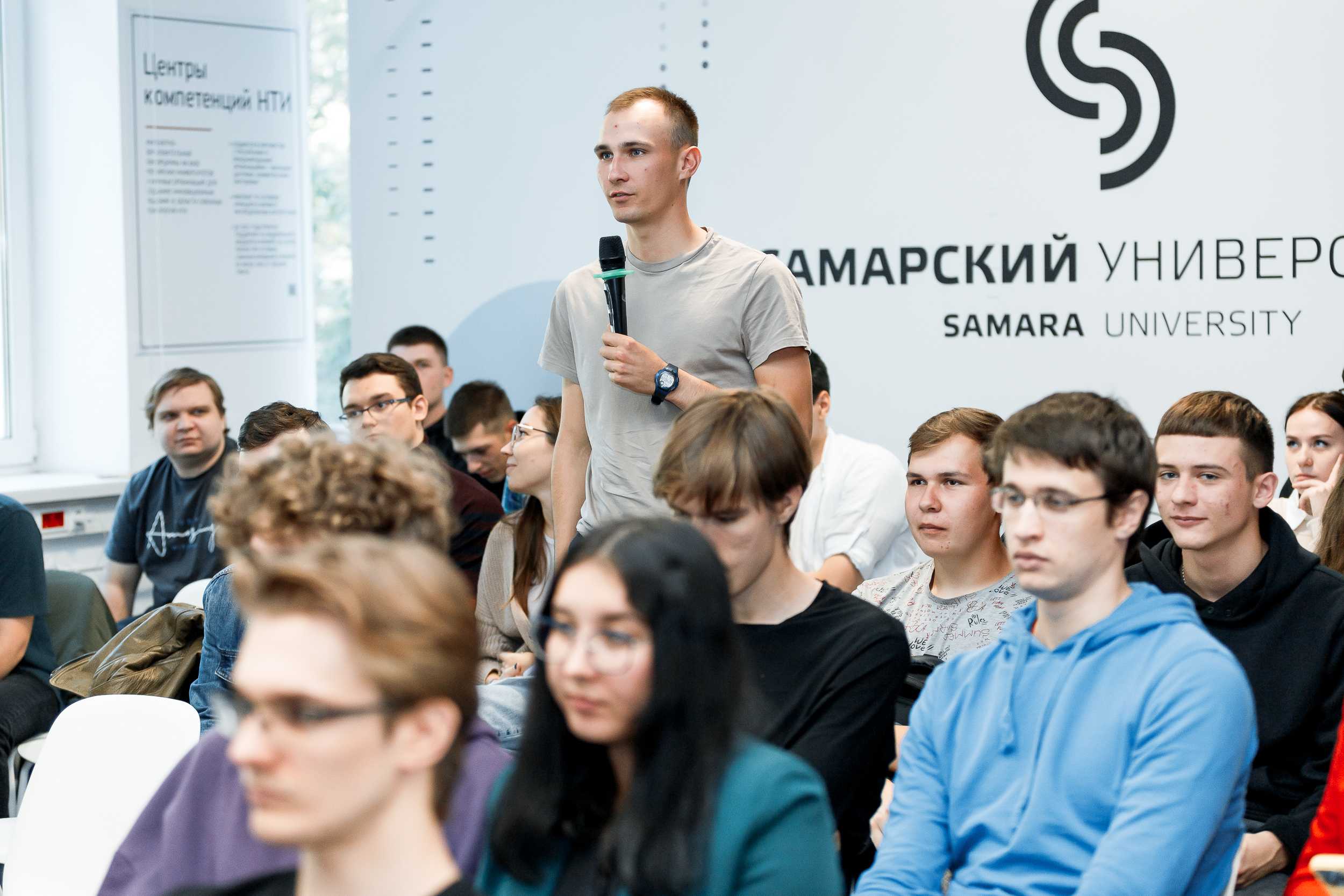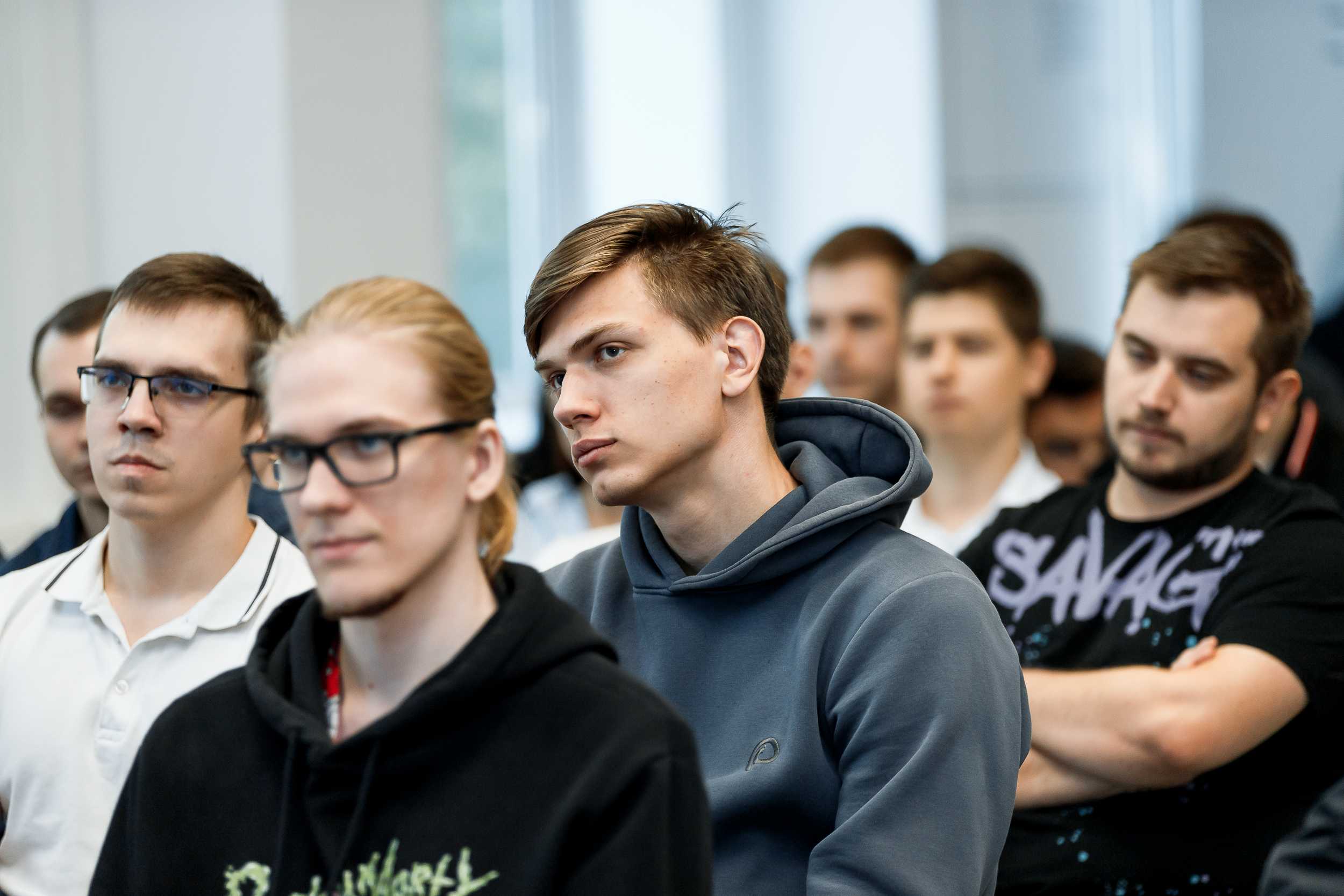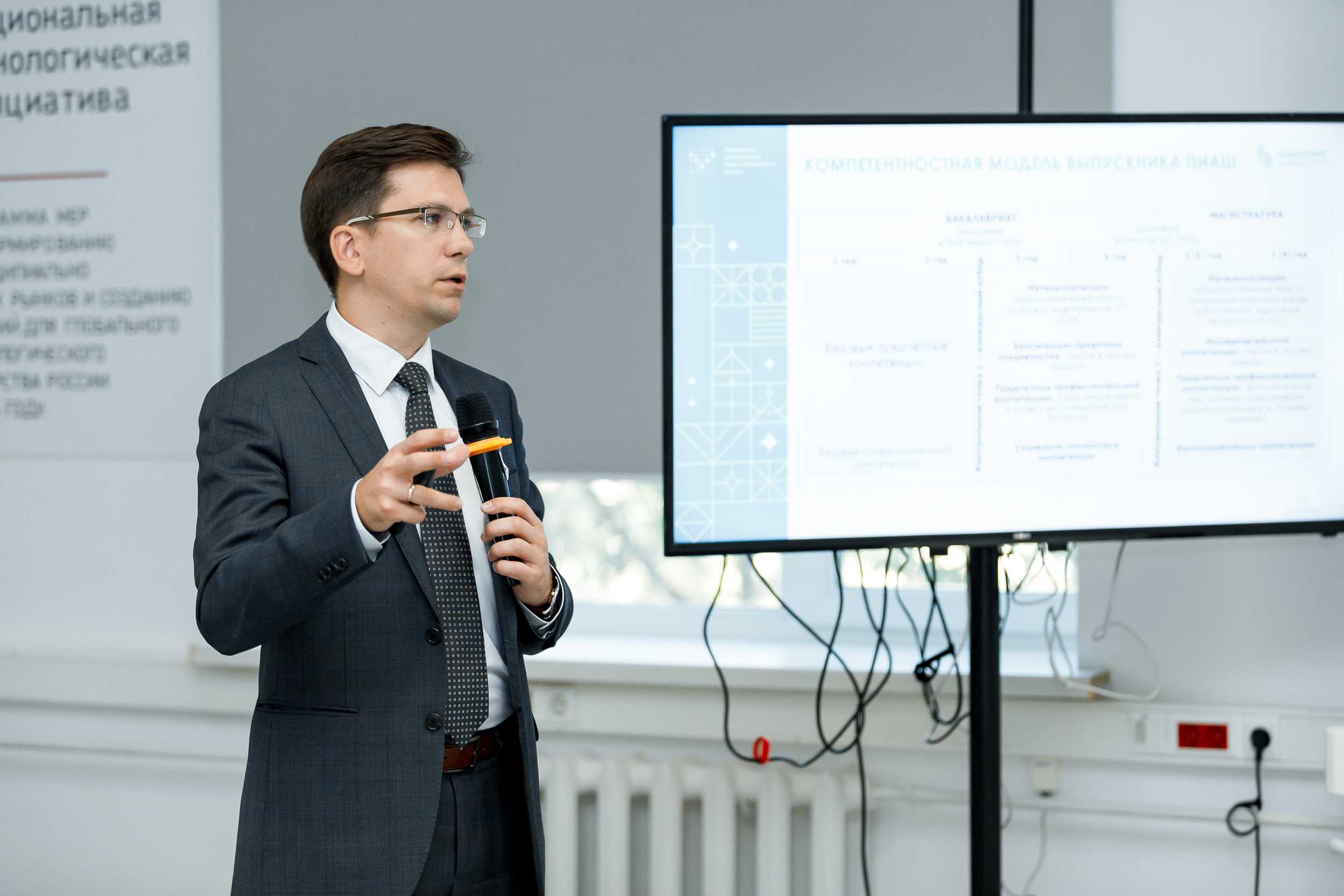Today, virtual rooms, in which students can study the design of the engine, processes of assembling and disassembling it, have already been created. The option of observing operation of various engine systems in virtual reality is also being worked out. The plans include creation of the virtual museum of engines developed in the Design Bureau of Academician Nikolay Kuznetsov.
“Today, within the Project “Advanced Engineering Schools,” we implement our own development trajectory. This is engineering special forces, this is clear specialization for solving future specific tasks to be relevant for the industry,” stressed Yuri Shmotin.
Representatives of the Corporation talked to students who solve actual production problems, in particular, those on development of casting systems for manufacturing the future engine parts by casting, as well as on optimizing the layout and placement of equipment in the cyberphysical factory. The specialists also demonstrated a small-sized mockup of the intelligent production cell to be currently used for preliminary testing and optimization of production flows.
Speaking to future engineers, Yury Shmotin identified three key challenges faced today by the industry creating gas turbine engines. Firstly, the state order amount allocated for experimental design work (R&D) in this area has significantly increased. Secondly, after 2023, production of serial engines is planned to be increased by two or three times. Thirdly, a serious challenge for the UEC is to maintain its presence in the markets of friendly countries that actively develop their own propulsion engineering.
Yury Shmotin focused the future engineers’ attention on the fact that when creating a modern engine, it is preparation of the production, which the bulk of the invested funds is allocated for.
“Adjusting serial production of new engines and their after-sales service requires significantly more investment than expenses for R&D,” said General Designer of the United Engine Corporation.
Results of the meeting with the UEC General Designer confirm that the approaches to training future engineers to be currently implemented at AAES, proactively supported by Rostech State Corporation and the United Engine Corporation, will properly respond to global challenges facing the industry.
 RU
RU  EN
EN  CN
CN  ES
ES 
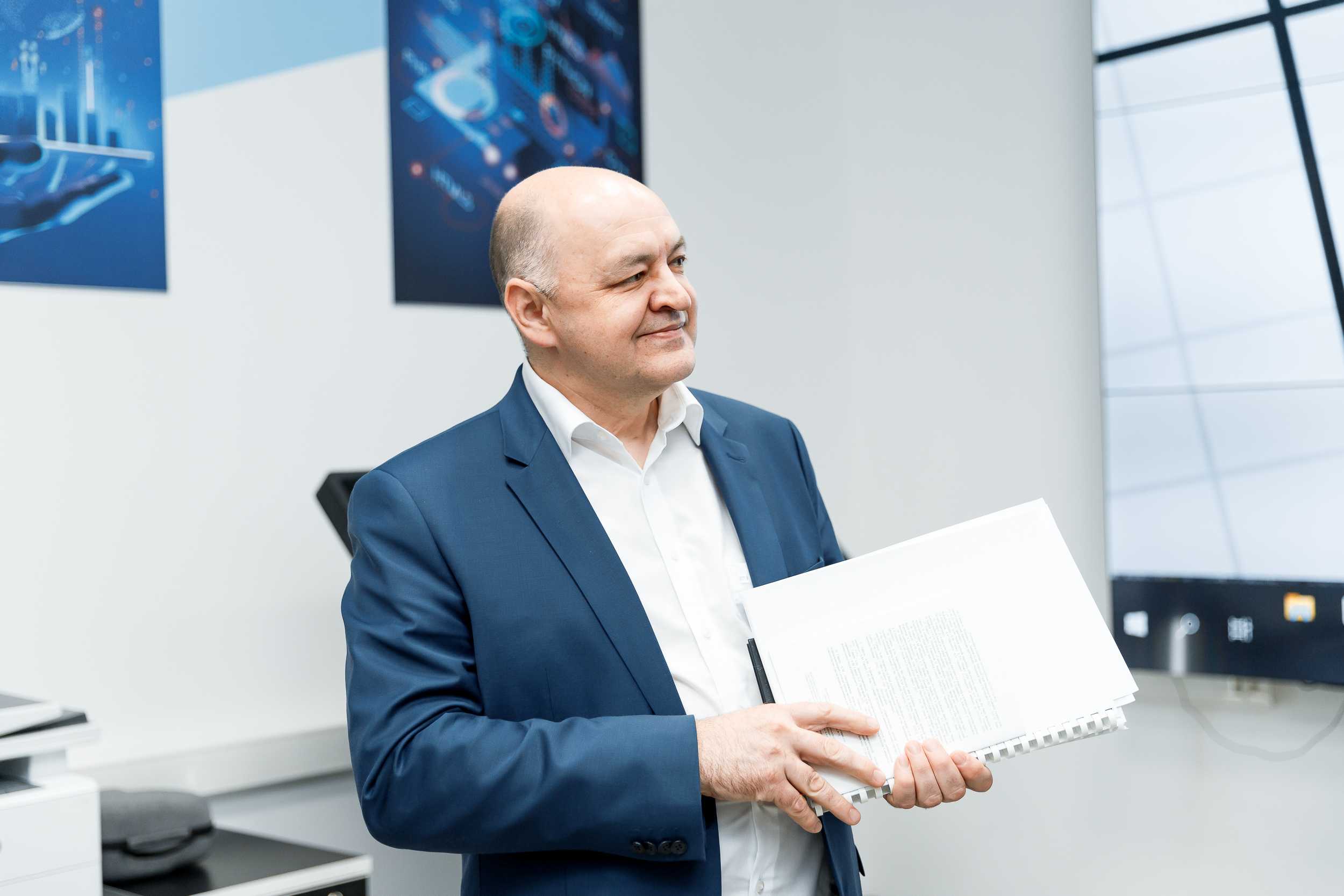
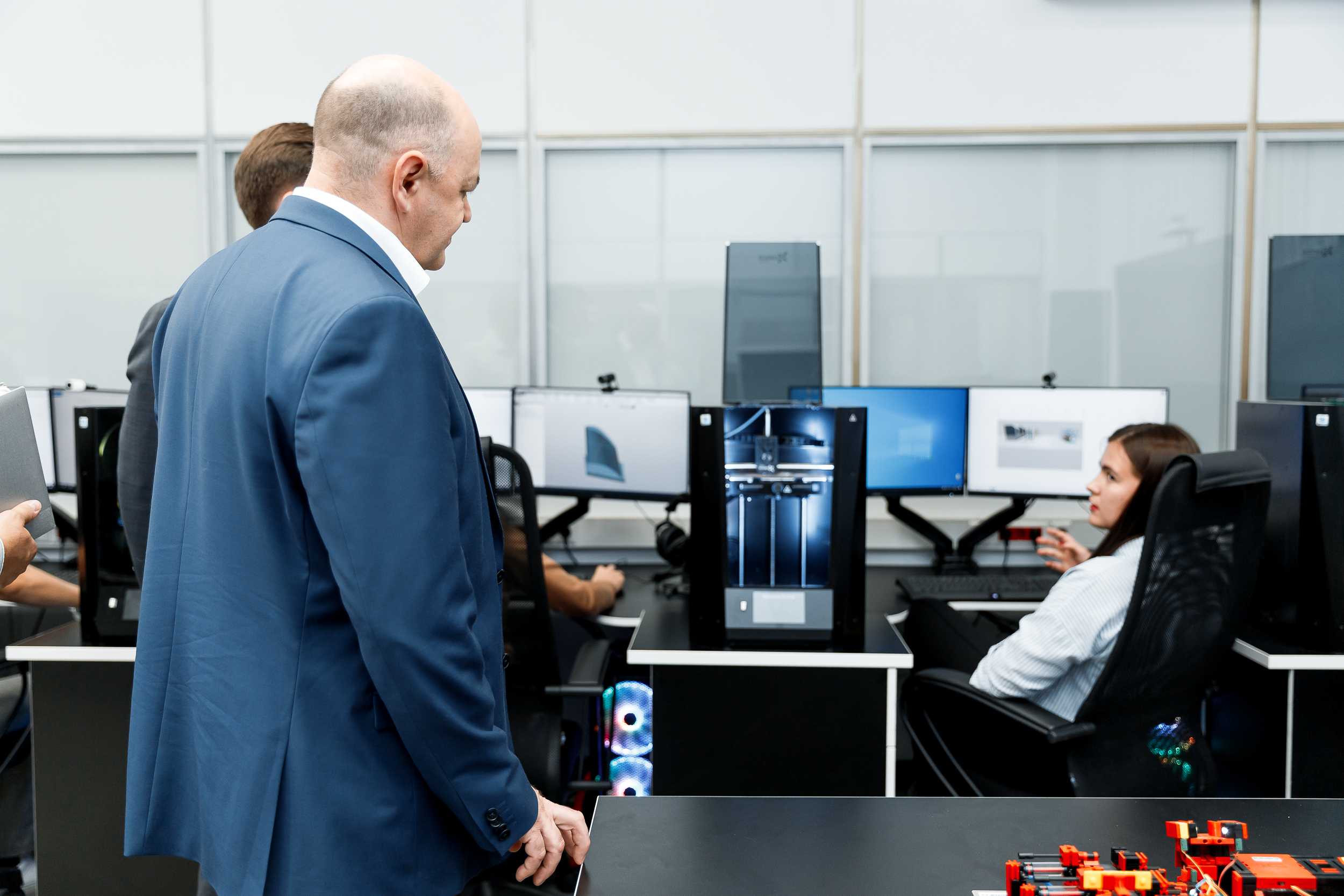
.jpg)
